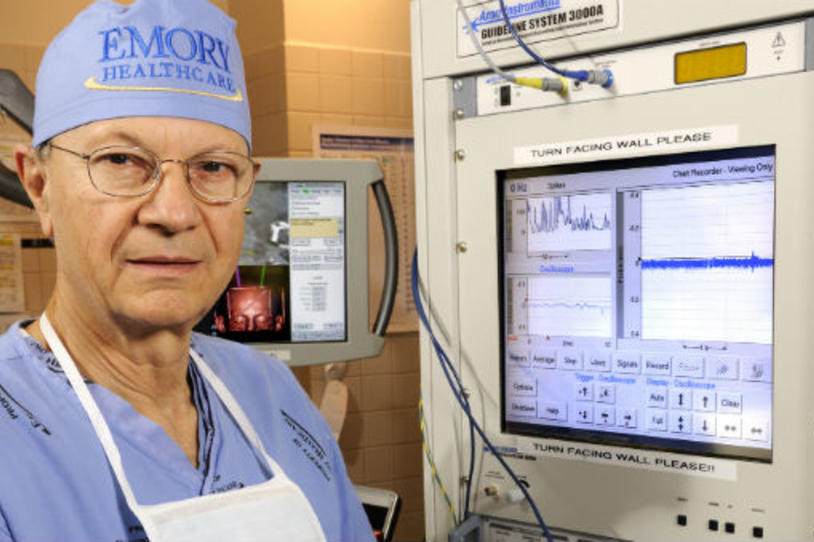
Mahlon R. DeLong, MD, of Emory University won the 2014 Breakthrough Prize in Life Sciences dedicated to Parkinson's disease research.
Our congratulations to Mahlon R. DeLong, MD, professor of neurology at Emory University School of Medicine, for his 2014 Breakthrough Prize in Life Sciences. The awards recognize six recipients with $3 million each for excellence in research aimed at curing intractable diseases and extending human life.
Mahlon was presented with the award in a ceremony December 12 in Mountain View, California, for defining and characterizing the circuits in the brain that malfunction in Parkinson’s disease. This scientific foundation underlies the treatment of Parkinson’s disease by ablation and deep brain stimulation.
The $3 million Breakthrough Prizes aim to celebrate scientists and generate excitement about the pursuit of science as a career and are sponsored by Silicon Valley titans Sergey Brin and Anne Wojcicki, Jack Ma and Cathy Zhang, Yuri and Julia Milner, and Mark Zuckerberg and Priscilla Chan. One prize, sponsored by Brin and Wojcicki, is aimed specifically at advancements in Parkinson's disease research.
Research from other 2014 winners may have application for Parkinson’s disease. Alexander Varshavsky, PhD, of the California Institute of Technology won for his study of intracellular protein degradation, advancing understanding of neurodegenerative diseases and other conditions. Robert Langer, PhD, from the Massachusetts Institute of Technology was honored for development of controlled drug-release systems and biomaterials that administer drugs through the skin without the need for needles. Michael Hall, PhD, of the University of Basel, Switzerland received an award for the discovery of Target of Rapamycin (TOR), which plays a role in regulation of cell death and has been implicated in the pathology of Parkinson’s disease.
